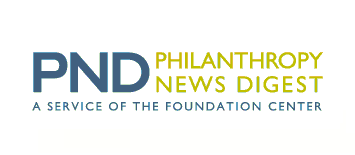
5 Questions for…
February 9, 2007
Robert Rosenkranz, Chairman, Rosenkranz Foundation
Ask almost any American about the state of public discourse in this country, and he or she is likely to express disappoint-ment and frustration. Hoping to do something about the increasingly partisan and ideological nature of that discourse, philanthropist Robert Rosenkranz and the Rosenkranz Foundation launched Intelligence Squared US, a series of Oxford-style debates that address hot-button concerns of the day, last September. The debates, which feature one three-person team proposing and a second team opposing a sharply framed motion, will be held on Wednesdays throughout the spring at the Asia Society in Manhattan, and are produced for radio and distributed nationally by WNYC/New York City Public Radio and National Public Radio.
Philanthropy News Digest: Did you have a specific objective, set of issues, or philanthropic strategy in mind when you created the Rosenkranz Foundation in 1985?
Robert Rosenkranz: Well, I wouldn’t dignify it by calling it a strategy. Our interests then were pretty much consistent with what they are today — higher education, public policy, and the arts. We’re not really a grantmaking foundation, in that we mostly support organizations that seem to us to be doing the right thing, as opposed to having formal application proce-dures and accepting unsolicited applications. Recently, however, we’ve started to request proposals in areas where we may have wanted to do something but couldn’t do it ourselves. For example, we became interested in the idea of translating classic documents of Western liberal philosophy and political thought into Arabic, but soon realized we couldn’t do it our-selves, so we solicited proposals from a number of different organizations we felt were credible. But that’s unusual.
PND: What have you learned about philanthropic effectiveness over the last twenty years?
RR: A couple of things. One, I think you have to approach philanthropy like a venture capitalist. You need to be willing to take risks, you need to be willing to fail, and you need to try a bunch of things and hope that a couple of them work. Two, don’t expect large organizations and institutions to do what you want them to do. You’re not really going to have much influence in a large institution, so you need to be smart about that. If they’re doing something you like and want to support, fine, do it. But don’t expect a major educational institution or a major museum to drop what they’re doing and support your agenda. That’s not going happen. You have to buy into their agenda and support it, or be prepared to do something else.
PND: Your most recent initiative is something called Intelligence Squared U.S. The original Intelligence Squared series was launched by John Gordon, a media entrepreneur, and Jeremy O’ Grady, editor-in-chief of The Week, in London in 2002. Why did you decide to bring the series to the States?
RR: We had felt for some time that the level of public discourse in this country was just not substantive enough, that you simply didn’t have a good forum for high-level discussion on important public policy issues. We felt the mainstream media was becoming more and more fragmented and ideological, that we were never going to have meaningful debate in Congress, and that the think tank world, with which we’ve been involved, was usually preaching to the choir. Against that backdrop, we felt the debate format was an interesting one because it had the potential to raise the level of discourse. When we saw what was going on in London with Intelligence Squared, it seemed to us we could translate that success to the United States. So that’s what we did. The live events are at the Asia Society here in New York, but the key to achieving our objective was getting buy-in from National Public Radio, which was extremely enthusiastic about the idea, and it’s that national radio syndication that really enables us to have an impact.
PND: How do you choose the debate topics?
RR: Well, I’m personally very involved in that part of it, along with Dana Wolfe, our executive producer. Dana, who worked as a producer at ABC News’ Nightline and had been involved with some of the presidential town hall meetings before she came to us, has great news sense. We’re trying to find topics that are newsworthy but also lend themselves to being framed in a way that encourages differences of opinion without degenerating into rancor.
PND: The four topics you’ve chosen for the spring series — “America is too damn religious,” “Global warming is not a crisis,” “Better more domestic surveillance than another 9/11,” and “Beware the dragon: A booming China spells trouble for America” — are nothing if not controversial. What kind of response have you gotten from policy makers, the media, and others? And do you plan to extend your support for the program beyond the initial eight debates?
RR: The response has exceeded our expectations. In fact, it’s been a bit of a problem for us, in that we’ve had to turn reporters away from the live events. But we’re very pleased, and we’re certainly going to continue to support the program. We already have a number of topics under consideration for next year, and we plan to up the frequency of the debates a little — we had eight debates this year, and we’re going to have ten next year, so they’ll be on more of a monthly schedule. If your readers are interested in learning more about the series, I’d encourage them to visit our Web site, IntelligenceSquaredUS.org, or just www.iq2us.org.